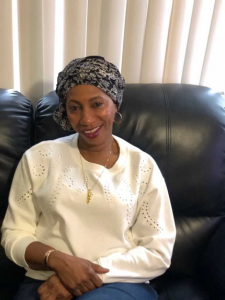Episode Description
Guest Bio: Rick Surpin
 Rick Surpin is the founder and President of Independence Care System (ICS) a 20 year old nonprofit organization in New York City which supports adults with physical disabilities to live at home. Rick is also the founder of Cooperative Home Care Associates (CHCA), a worker-owned home care agency which served as the prototype for the “Better Jobs, Better Care” model of care. He served as the CEO for 16 years and as Chairperson of the Board for 33 years. He also was the founding Chairperson of the Board of PHI a national nonprofit organization which promotes and further develops the “Better Jobs, Better Care” model, and served in that role for 27 years.
Rick Surpin is the founder and President of Independence Care System (ICS) a 20 year old nonprofit organization in New York City which supports adults with physical disabilities to live at home. Rick is also the founder of Cooperative Home Care Associates (CHCA), a worker-owned home care agency which served as the prototype for the “Better Jobs, Better Care” model of care. He served as the CEO for 16 years and as Chairperson of the Board for 33 years. He also was the founding Chairperson of the Board of PHI a national nonprofit organization which promotes and further develops the “Better Jobs, Better Care” model, and served in that role for 27 years.
A case for worker-owned home care agencies...
When you listen to Rick Surpin talk about what led him to create Cooperative Home Care Associates, you’ll be moved both by his passion for well-paid, stable jobs for home care workers, as well as his commitment to the delivery of high quality, person-centered care for those in need.
Rick founded the agency 25 years ago as a worker-owned home care agency in the South Bronx. Over the years, it has spread to other NYC boroughs, and has grown to become the largest worker cooperative in the U.S.! As a worker-owned organization, each employee is invited to purchase $1,000 ownership stake in the company. This is done through small weekly payroll deductions of just over $3 for a five-year period, so workers can afford to become owners. The organization is run by a Board of Directors and a worker assembly. By purchasing a share in the company, workers have the right to vote. They also have the right to be on the company’s Board of Directors.
Rick says there’s one other home care company in the U.S. that’s worker-owned in Philadelphia, and it was developed through a sister agency of Cooperative Home Care. There are other small cooperatives providing in-home care in Wisconsin, but Rick says it’s not a prevalent model. I asked him why. He told me:
Well it’s very difficult to do. Actually, I would distinguish between the worker cooperative as a governance model and an ownership model. Some of the other things that we do, like invest in training and investing in quality jobs, you could do that without worker ownership. And there are places that do that.
But Rick says he believes that a worker owned cooperative is the most comprehensive version of a labor-based home care company.
He raised a very interesting issue during our interview. About 15 years ago, the organization decided to voluntarily affiliate with a union. Rick says,
It was a good thing and a problem. It was a good thing because workers became part of a larger labor movement in New York City and the state. At the same time, we had to reallocate some of the rights and responsibilities that came with ownership, like deciding wages, and move that over to the collective bargaining agreement with the union. And that was a difficult process.
But he says that “people on both sides put a lot of effort into it to make it work and it has worked over the 15 years.” Rick says that there is a commitment to a “quality jobs, quality care approach”.
Guest Bio: Aicha Cherif, or TuTu
 TuTu, is a Certified Home health Aide based in Boston. She has been caring for clients for more than 20 years. This includes 10 years working in an Assistant Living facility, and another 10 years, working as a Private Aide. Tutu is passionate about her work, and is devoted to the families with whom she works. She has been a Boston resident for 25 years, and has two grown children.
TuTu, is a Certified Home health Aide based in Boston. She has been caring for clients for more than 20 years. This includes 10 years working in an Assistant Living facility, and another 10 years, working as a Private Aide. Tutu is passionate about her work, and is devoted to the families with whom she works. She has been a Boston resident for 25 years, and has two grown children.
Selected Articles
- Bringing Pro-Worker Home Care Practices from the Bronx to the Pacific Northwest and Beyond, by Oscar Perry Abello, Next City, 10/10/19
- Home Care Cooperatives: Worker Ownership in Focus by Dr. Julie Whitaker, Wisconsin Long Term Care Workforce Alliance
- More Home Care Agencies May Become Employee-Owned as Aging Owners Exit, by Kaitlyn Mattson, Home Health Care News, 10/2/18
“Fighting Forward” with Cooperative Power in the Bronx, by Steven Wishnia, The Indypendent, 10/2/19 - Antidotes to Brutal Capitalism? Some Hidden in Plain Sight, by Frances Moore Lappé, Common Dreams, 2/2/19
- We Need More Startups That Don’t Prioritize Growth Above All Else, by Mara Zepeda and Jennifer Brandel, Harvard Business Review, 9/1/19
- Home Health Care: Should It Be Work Worth Doing?, by Eduardo Porter, The New York Times, 8/29/17
- Employee Ownership’s Presence Grows in Home Healthcare, by Steve Dubb, 4/4/18
- How to Make Wealth Building and Opportunities More Equitable, by Henry A.J. Ramos & Katie Taylor, Stanford Social Innovation Review, 3/15/19
- Could This Idea Help Fix America’s Shortage of Home Care Workers?, by Chris Farrell, Forbes, 8/16/17